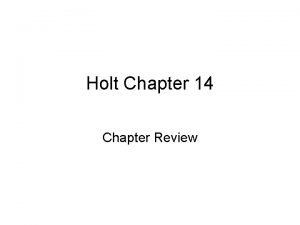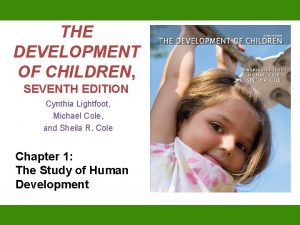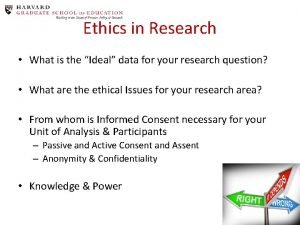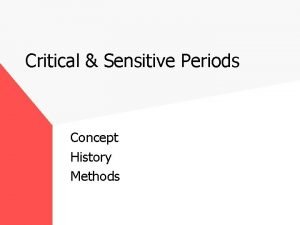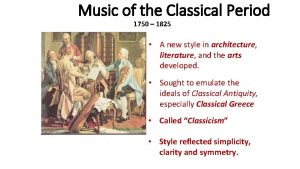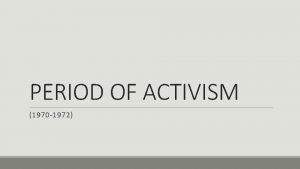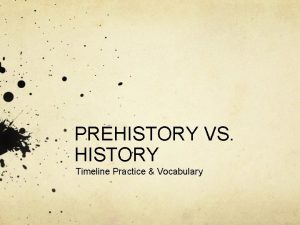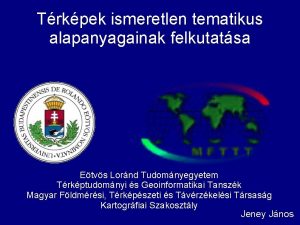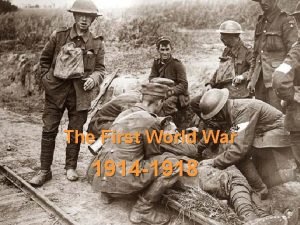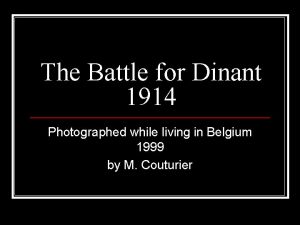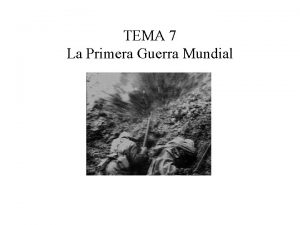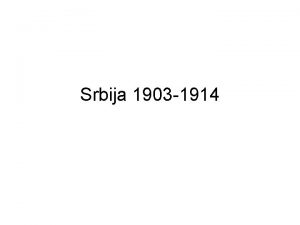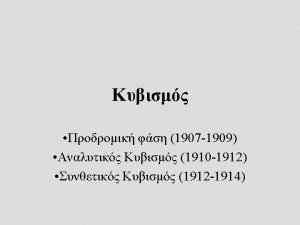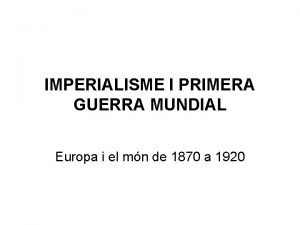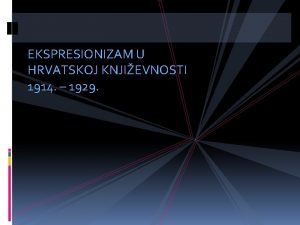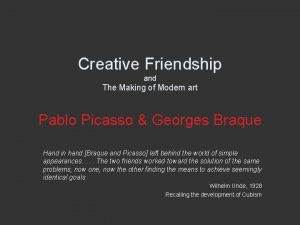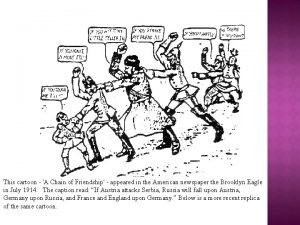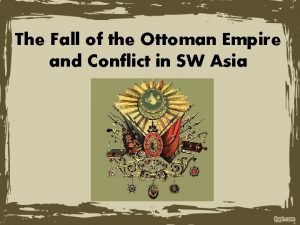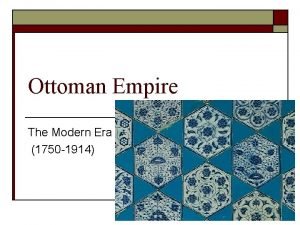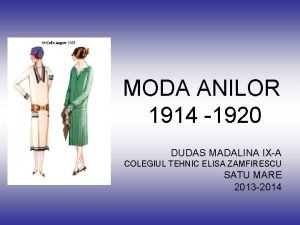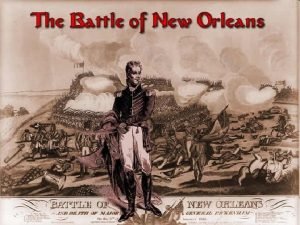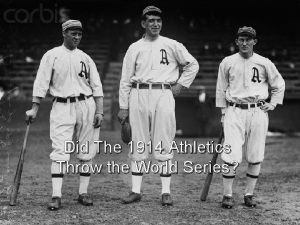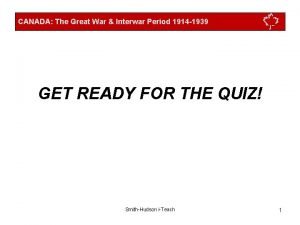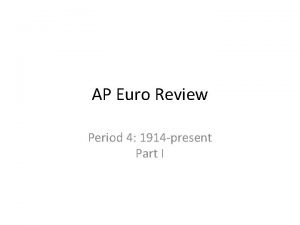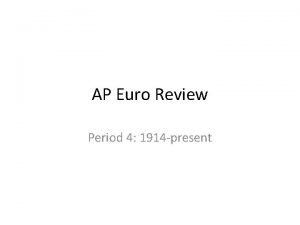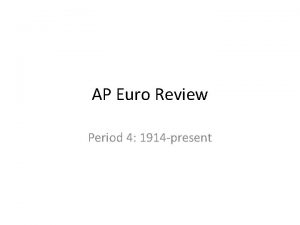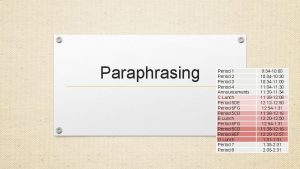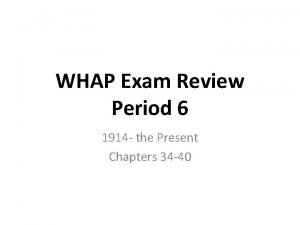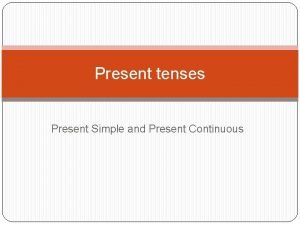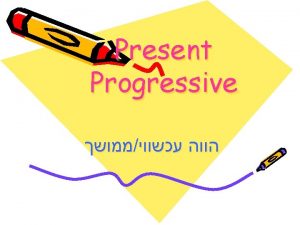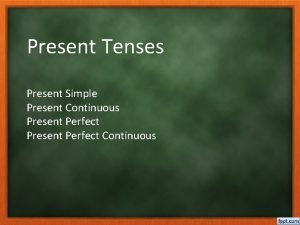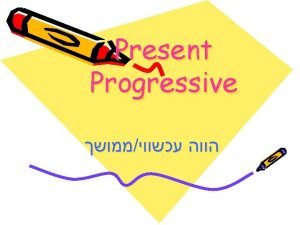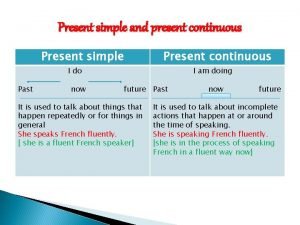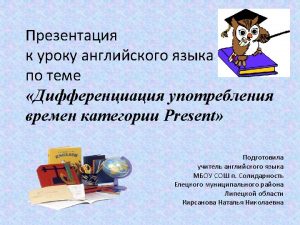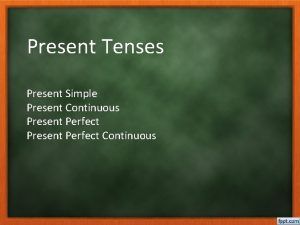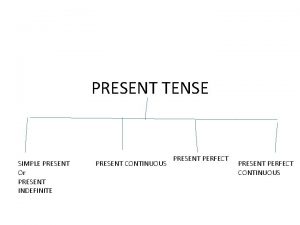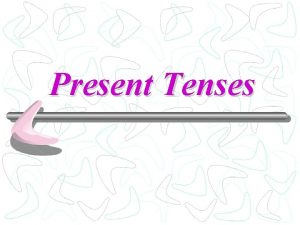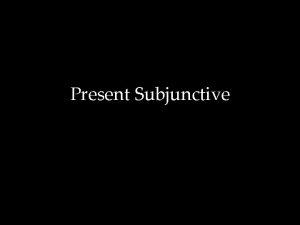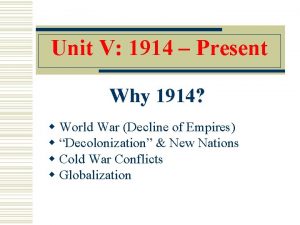AP Euro Review Period 4 1914 Present Part
































- Slides: 32

AP Euro Review Period 4 (1914 -Present) Part II

The New Physics • • Albert Einstein (1879 -1955) – Theory of relativity challenged Newtonian physics – Built on Max Planck’s quantum theory – Matter and energy are interchangeable and even a particle of matter has enormous energy Ernest Rutherford – Atom could be split Werner Heisenberg – Principle of uncertainty (1927) Enrico Fermi – 1 st nuclear reactor

Public Culture • • • Cinema – Became more popular and profitable than any form of entertainment in history – People of every class attended; women could go without male escorts – The USA led in film production, followed by Japan and Germany – Introduction of talking pictures underscored national differences; countries strained to censor on-screen sex and violence Music • Many countries banned German films in the 1920 s – In America, the period after World War I and before the start of the Great Depression was known as the “Jazz Age” • Jazz openly learned from African art Consumerism – Sophistication was used to justify lipstick, short skirts, alcohol – Berlin rivaled Paris as a European artistic center for the first time The “flapper dress, ” popularized in the ‘ 20 s.

Germany 1920 s 1923: • Hyperinflation • Ruhr crisis • Beer Hall Putsch 1924: • Dawes Plan 1925 • Treaty of Locarno – 1926: Germany admitted to LON 1928 • Kellogg-Briand 1929: start of the Great Depression

Germany under Hitler, 1930 s • 1933 Hitler named chancellor (Jan) – Feb: Reichstag Fire – March: Enabling Act – April: Boycott – May: Book burnings – Oct: withdraws Germany from LON • 1934 Night of the Long Knives • 1935 Nuremburg Laws, Triumph of the Will, rebuilt military • 1936 Berlin Olympics, Rhineland, Rome-Berlin AXIS • 1937 Guernica, Degenerate Art Exhibition • 1938 – Anschluss – Munich Conference – Kristallnacht • 1939 Nazi-Soviet Non-Aggression Pact, invasion of Poland

Fascism in Europe Italy • 1919 Mussolini creates Fascist Party • 1922 March on Rome • 1925 “Il Duce” • 1929 Lateran Treaty • 1935 Ethiopian invasion • 1936 Rome-Berlin AXIS • 1940 Tripartite Pact Spain • 1936 -39 Spanish Civil War • 1937: Guernica • 1939 Francisco Franco’s nationalists win the war

Post-WWI Western Democracies England • More democratic than before WWI • Labour vs. Conservative – Issues: suffrage, unemployment, pensions, public housing – Labour replaced Liberal Party under Ramsay Mac. Donald – Coalition government France • Rise of Socialism and Communism • Moderate right to conservative left – Infrastructure building – Maginot Line • Ruhr crisis

Communism in Europe: Stalinist Soviet Union (1928 -1953) • 5 -Year Plans – Industrial: heavy industry – Agricultural: collectivization • • The Great Purge Totalitarianism Soviet Women Nazi-Soviet Non-Aggression Pact

World War II 1939 -1945

WWII Early AXIS Victories • • • 1939: – Blitzkrieg, Poland – Phony War – US Neutrality 1940: – Tripartite Pact – Denmark, Norway, Benelux countries – Fall of France, Dunkirk, Vichy France – Battle of Britain – The Mediterranean Front 1941: – The Balkans – Invasion of the Soviet Union – Atlantic Charter – US entry Allies Victorious • • 1942: – El Alamein – Battle of Stalingrad – “Soft Underbelly” 1943: – Tehran Conference 1944: – Rome – D-Day – Battle of the Bulge 1945: – Yalta Conference – VE Day – Manhattan Project – Potsdam Conference – Nuremburg Trials

The Holocaust

1933 – 1939 • Dictatorship under the Third Reich • Early Stages of Persecution • The First Concentration Camps

1939 - 1945 • • • World War II Murder of the Disabled Persecution & Murder of Jews Ghettos Einsatzgruppen (Mobile Killing Squads)

Post-1945 • • • Postwar Trials Displaced Persons Camps and Emigration Pogroms Palestine & the British Response United Nations, May 18, 1948 Middle East Turmoil

Postwar Europe: Iron Curtain

Soviet Bloc Divided Germany

Decolonization � The end of empire post. WWII � Between 1947 -1962, almost every colonial territory gained independence � CAUSES: � Nationalism � Wilsonian idealism � Japanese occupation of colonies during WWII � Cost of empire: Focus on rebuilding Europe � Hypocrisy of colonialism � The UN

Post WWII Democracies France • 4 th and 5 th Republics • Charles De Gaulle • Algerian Crisis • Student revolts 1968 West Germany • Konrad Adenaur • Christian Democratic Union • Social welfare policies Britain • Labour Party vs. Conservative Party • The Welfare State Italy • Christian Democratic Party • ECSC & Council of Europe

The “Economic Miracle” • Unprecedented economic growth in European history into the 1960 s • CAUSES: – – Marshall Plan, 1948 Keynesian economic policies Increased demand Elimination of economic barriers with the creation of the Common Market

European Economic Unity • Bretton Woods, 1944 – IMF, World Bank, GATT (WTO) • The Council of Europe, 1948 • The Schuman Plan, 1950 proposed the ECSC • The Treaty of Rome, 1957 creates the Common Market

The EU • Background: – 1967: ECSC + EEC = EC – 1985: Schengen Agreement – 1991 -92: Maastricht Treaty » Creation of the euro: single currency integrating the currency of 11 western and central European nations » Incorporation of Schengen Area » Proposal for common foreign and defense policies » European Parliament, directly elected body of EU

European Defense NATO, 1949 Warsaw Pact, 1955

Arms Race Space Race

USSR Krushchev (1953 -1964) 1956 – De-Stalinization – Hungarian uprising – Suez Crisis 1957 – Sputnik 1961 – Berlin Wall 1962 – Cuban Missile Crisis Brezhnev (1964 -1982) 1968 – Prague Spring – Brezhnev Doctrine 1972 – Nixon’s Détente 1979 – Afghanistan – Moscow Olympics 1980 – Solidarity (Poland)

Gorbachev (1985 -1991) • • Glasnost Perestroika Democratization INF and START Treaties Revolutions of 1989

End of the USSR Yeltsin (1991 -2000)

Resurgent Russia? • War in Chechnya – Muslim insurgency in the Russian republic 1991 – 1997 peace agreement reached – 1999 second war • Ukraine Crisis – Putin – 2014 Putin seized the Crimea after a revolution removed pro-Russian Ukrainian president

Guest Worker Period 1958 -1972; Rise of Xenophobia and Right-Wing Nationalism • • Over 8 mn. work permits issued to foreigners for work Concerns about impact of European culture and economy led to demands to restrict immigration – French National Front, Jean. Marie Le Pen – Austrian Freedom Party, Jorg Haider Demonstration against National Front in Paris after the results of the election December 2015. FN political poster, reading: "The immigrants are going to vote. . . and you're staying home? !!"

Energy Crisis 1970 s – 1973: OPEC oil embargo triggered by Yom Kippur War – stagflation – 1979: oil price increase triggered by Iranian hostage crisis • 1970 s economic downturn, high inflation, deficit spending and large debts from the “welfare state” led to election of Conservative governments Margaret Thatcher, Conservative PM 1979 -1990

The Consumer Culture – Gadget revolution – Purchase on credit – Rise of a new middle class due to more access to higher education – Rural workers continued urban migration patterns – Class tension reduced due to the welfare state – Leisure and recreation became major industries – Telephone, radio, and TV contributed to proliferation of ideas and a global culture

Women • Post-WWII women married early and had children quickly (average 2/family) • mid-20 th century more married women became full or part-time wage earners outside home • 1960 s couples did not always marry; weakened traditional marriage • Second-Wave Feminism – Simone de Beauvoir – Betty Friedan Births outside of marriage

The Catholic Church & Secularism • Second Vatican Council, 1962 -65 (Pope John XXIII) – Most important since the Council of Trent (mid 16 th C) – Allowed for use of vernacular in Mass – Respect for other Christian churches • Pope Francis, – “Amoris Laetitia” April 2016 – “Laudato si” June 2015 • Secularism – 21 st C. Europe very secular European priests and ministers are preaching to ever-emptier pews. Just 10% of adults in France and Sweden go to church once a month or more. In Ireland, regular attendance fell from 90% in 1990 to 60% in 2009. ‘The vision that Pope Francis offers in his encyclical is of a world spiraling toward disaster, in which people are too busy shopping and checking their cell phones to do, or even care, much about it. ’
 Chapter review motion part a vocabulary review answer key
Chapter review motion part a vocabulary review answer key The development of children 7th edition
The development of children 7th edition Refractory period
Refractory period When is the relative refractory period
When is the relative refractory period Critical period vs sensitive period
Critical period vs sensitive period Critical vs sensitive period examples
Critical vs sensitive period examples Approaches to child development
Approaches to child development What period lasted from 1750-1825?
What period lasted from 1750-1825? Nonmetal period 3 mass 32
Nonmetal period 3 mass 32 In what year is the period of activism
In what year is the period of activism Stability period vs measurement period
Stability period vs measurement period Trustee period and royal period
Trustee period and royal period Bc va ad
Bc va ad In 1914, who controlled the shaded areas on the map?
In 1914, who controlled the shaded areas on the map? Európa térképe 1914-ben
Európa térképe 1914-ben Colonial empires 1914
Colonial empires 1914 Dinant 1914
Dinant 1914 Imperialism map 1914
Imperialism map 1914 Alianzas en primera guerra mundial
Alianzas en primera guerra mundial Topovsko pitanje
Topovsko pitanje Picasso 1908
Picasso 1908 Causes del colonialisme
Causes del colonialisme Hrvatska književnost 1929 do 1952
Hrvatska književnost 1929 do 1952 Hrvatski ekspresionizam
Hrvatski ekspresionizam Picasso ma jolie 1914
Picasso ma jolie 1914 Colonial empires 1914
Colonial empires 1914 A chain of friendship
A chain of friendship How did the ottoman empire fall
How did the ottoman empire fall Ottoman empire 1914
Ottoman empire 1914 Moda 1920
Moda 1920 Fired our guns and the british
Fired our guns and the british 1914 world series
1914 world series 1914 1918
1914 1918
